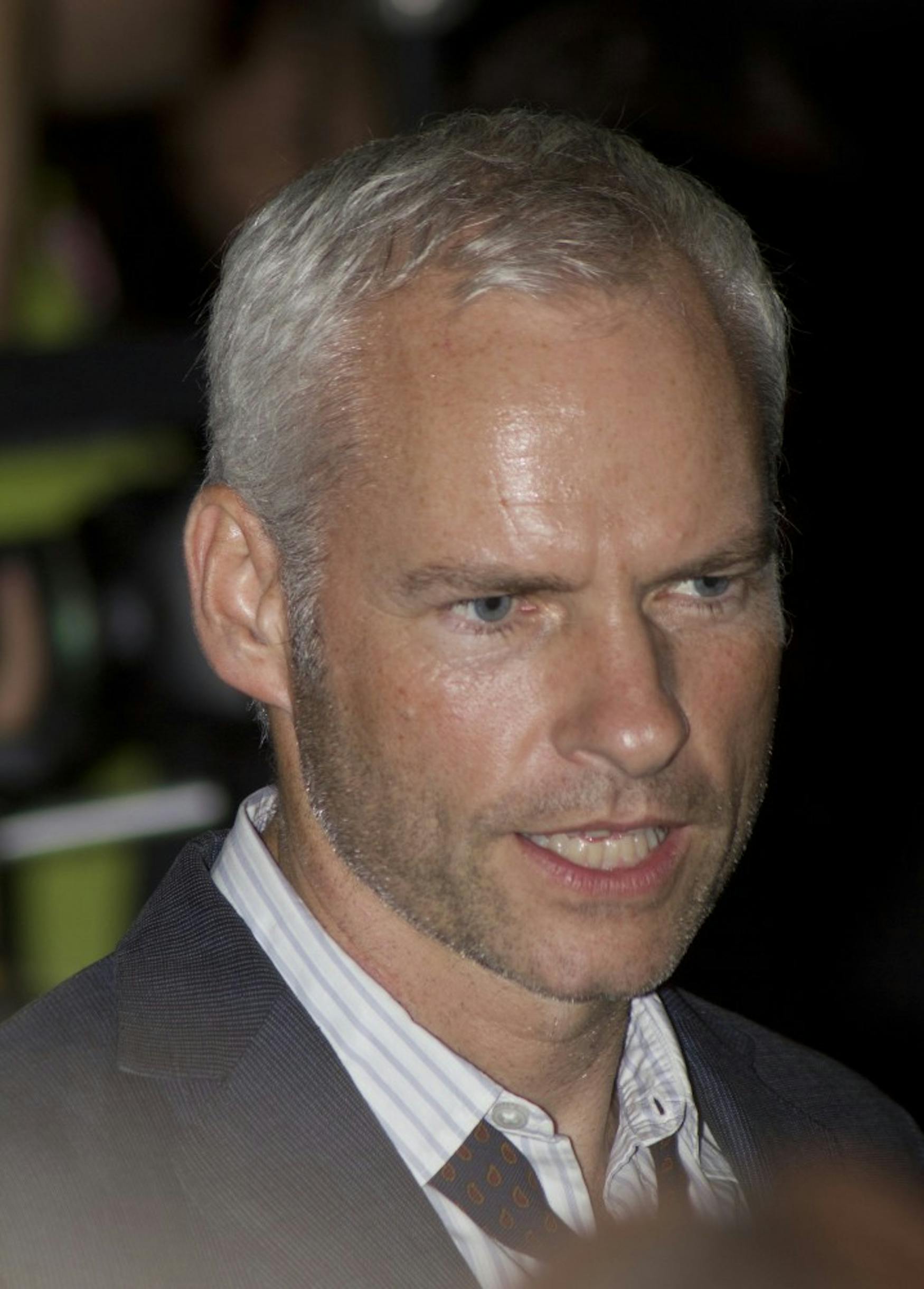McDonagh thrills with ‘Three Billboards’
Review — Telling you all that I have been looking forward to this film would be an understatement. Ever since it was announced two years ago, I have been anticipating a thought-provoking experience from “Three Billboards Outside Ebbing, Missouri.”
Now you may be thinking: “Why is this indie movie so important?” Well, it’s because it was made by Martin McDonagh, the writer-director of my favorite movie of all time, “In Bruges” (2008), and my number nine “Seven Psychopaths” (2012); these being his only two films apart from his Oscar-winning short film “Six Shooter” (2004). I’ve been waiting for the third since 2012.
Thanks to an early screening at the Brattle Theatre in Harvard Square on Oct. 26, I was one of a select few to watch “Three Billboards” two weeks before its release this Friday.
“Three Billboards” takes place, you guessed it, just outside of Ebbing, Missouri, a small town with a close-knit community. It’s been a year since a local mother (Frances McDormand) found out her daughter was murdered. She’s sick of waiting for an arrest, so she decides to bring the cold case to light again by leaving a message on three adjacent billboards. When a local deputy Dixon (Sam Rockwell) sees the message for the first time, he informs his mentor and commanding officer (Woody Harrelson). I feel if I give any more details about the plot the entire film will be ruined, so I will leave it at that.
First off, there should be no question that “Three Billboards” will be a major awards contender. The movie has already received praise in the form of the Venice International Film Festival’s “Best Screenplay” award and multiple audience-choice picks at multiple festivals like the Toronto International Film Festival.
McDonagh has easily written the best script of the decade, eclipsing “Seven Psychopaths.” As a playwright, you can understand that he gives his all to his scripts. He’s quite well-known in the theater community for penning “The Pillowman,” a dark comedy revolving around a writer arrested for child murders resembling those found in his short stories.
Though I commend his direction and the accompanying cinematography by Ben Davis, they are not the main standouts. The script is perfect. No frame is without purpose, each scene is called back. The storytelling is so dense with vital information and character moments, you pay no attention to the runtime of each scene.
The movie felt longer than it was (one hour and 55 minutes), but not in a bad way whatsoever. There is so much to dissect, so much to absorb. The time efficiency in this film should be commended.
Editor Jon Gregory should get as much recognition as possible for fitting this story into a tight time frame (under two hours) while keeping all the crucial elements stacked atop each other, discarding all of the fluff. Carter Burwell’s poignant score ties all of the technical aspects behind the camera together.
But let’s shift now to the unparalleled tour-de-force acting featured in “Three Billboards.” First to be mentioned is McDormand, who is unrecognizable as the dirty-mouthed mother who will stop at nothing to bring her daughter’s case back into the public eye. People usually see her as the kind, competent Minnesotan police chief in her most famous role in “Fargo”; or at least that’s how I’ve always seen her.
But in this she’s tough, she’s rude, she’s witty and she kicks ass. She’s all of these things in back-to-back scenes, done seamlessly and with subtlety. Each action, each delivery, what she does, what she doesn’t do; they all summate to a touching performance that surprises, intrigues and evokes sympathy.
So far, this year there have been very few supporting performances that stood out in film. The most notable were Patrick Stewart in “Logan,” Holly Hunter in “The Big Sick,” Tilda Swinton in “Okja” and the entire cast of “Dunkirk” who supported each other. Not since J. K. Simmons in “Whiplash” has an Oscar win been so guaranteed.
Sam Rockwell delivers a performance that steals every scene, every chuckle, every whimper. I can’t give away the reasons why he elicits such emotion, because that would reveal important plot points and character arcs, so I will hold my tongue (or fingers over this keyboard, I suppose).
Rockwell is an extremely underrated actor with stellar performances in more terrible movies than good ones. If you want to see more of him, I once again recommend “Seven Psychopaths,” as well as his best work until now: “Moon” (2009).
The praise given to McDormand and Rockwell should in no way diminish the rest of the supporting cast. Woody Harrelson, Lucas Hedges, Caleb Landry Jones, John Hawke, Peter Dinklage and Zeljko Ivanek all become the colorful characters of Ebbing, Missouri. Jones, however, is a particular standout among these men.
His recent roles have been getting better and better. He’s been in this year’s best films so far: “Get Out,” “American Made,” “The Florida Project” and now “Three Billboards” while also appearing in this summer’s “Twin Peaks” revival season. However, removing any of these men would be a detriment to the atmosphere of unease, hilarity, villainy and heroism in this Missourian community.
I in no way want to overhype my review of “Three Billboards,” yet at the same time none of my praise is exaggerated. The film showcases the perfect execution of my favorite film genre: dark comedy. McDonagh does not adhere to the rules of political correctness.
Prepare to laugh at the un-laughable, sympathize with the unsympathetic and fall in love with the unlovable. He is a master of writing, so I recommend you don’t miss it.
“Three Billboards” just barely bests “Seven Psychopaths,” which means it just makes my top 10 list of all time. I will be returning to the Embassy this Friday, ready to re-watch the best film of the year. A-plus.




Please note All comments are eligible for publication in The Justice.